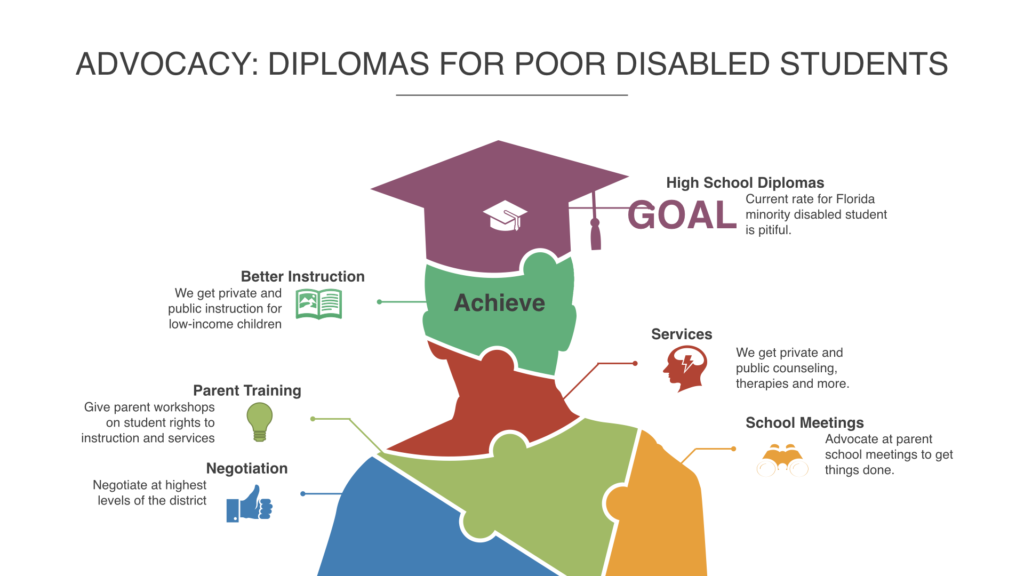The Big Picture
So how does helping individual kids fit into the big picture? Of course, we don’t claim that we’re solving all the problems of the inner city here at Help This Kid. But we do know at least three important ways that we’re improving life on a larger scale.
– What we do to improve graduation rates for disabled students.
– What we do for individuals can lead to real improvements at the troubled school that our clients leave.
– What we do to help kids with discipline problems is supported by state-of-the-art research on alternatives to school suspensions and expulsions.
Increasing Graduation Rates for Students with Disabilities
One of the goal’s of our work, as illustrated by the infographic below, is to improve the chances of graduation with a regular diploma for students of disabilities. In Florida and other states the number of minority students with disabilities who graduate with a diploma, as opposed to just a certificate, is pitifully low. Here’s how we’re trying to change that.

Improving Troubled Schools
The school which our clients choose to leave often receive reforms when we go in to help a kid there. Ironic, isn’t it?
Let me give you an example. Imani, the girl in the video below, went to a chronically failing school. And when I say chronically, I mean decades of academic underachievement, a culture of widespread recurring suspensions, and fighting on school grounds on almost a daily basis. In fact, that school where Imani was suspended on a weekly basis for pretty run-of-the-mill bad behavior like cutting class was dominated by a Dean of Discipline who everyone called “sergeant.”
Because of the attention the school got at the highest levels of the district when our top-notch team went in to advocate for her, the school has undergone a renaissance of sorts since. Don’t think we’re naive – we can only hope that the change there will last – but it’s a start.
New Approaches to School Discipline
In the past few years many nationwide leaders have called for disciplinary strategies other than suspensions and expulsions that allow students to stay in school and not miss valuable learning time. It’s a fact that minority students and those with disabilities receive a disproportionate share of suspensions. And according to the latest research, 22 states and DC, including Florida, have completely revamped their approaches to discipline to “limit the use of exclusionary discipline practices; implement supportive (that is, non-punitive) discipline strategies that rely on behavioral interventions; and provide support services such as counseling, dropout prevention, and guidance services for at-risk students.” That’s exactly the kind of services we were able to secure for Imani in the video below.
Help This Kid’s unique approach to advocacy for inner city kids with behavior problems fits right in with the newest research.
